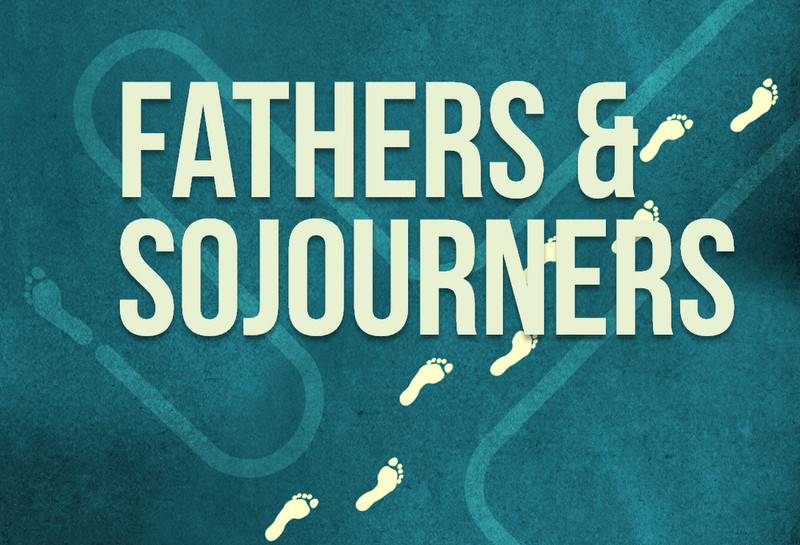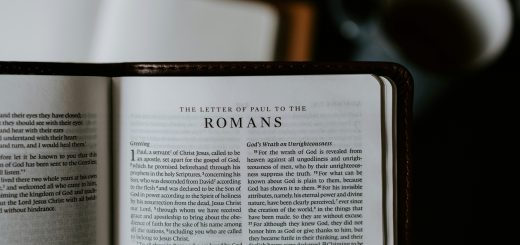Fathers and Sojourners
 ‘Faith is the assurance of things hoped for, the conviction of things not seen’ (Hebrews 11:1)
‘Faith is the assurance of things hoped for, the conviction of things not seen’ (Hebrews 11:1)
Now that Joseph has wisely prepared his brothers and his father’s household to meet Pharaoh (Genesis 46:31-34), he goes before Pharaoh and presents five of his brothers (Gen 47:1-6). The meeting goes exactly as Joseph predicted, with Pharaoh asking for their occupation, and the brothers replying as they are instructed; they are shepherds, ‘just as their fathers were’. They have come to ‘sojourn’ in the land because of the famine, and desire to dwell in the land of Goshen.
Joseph then brings his father before Pharaoh (Gen 47:7-10). Jacob blesses Pharaoh and is asked for his age, an expected question that evokes an unexpected response! Jacob says that the days of the years of his ‘sojourning’ have been 130 years, and that these days of the years of his life have been ‘few and evil’, and have not attained to the days of the years of the life of ‘his fathers’ in their sojourning.
Do you see the similarities in the responses of both Jacob and his sons? Firstly, there is such a consciousness that they are sojourners, people who have yet to complete their journey. Secondly, they are especially mindful of the lives of their fathers, using them as a comparison point for their own lives, remembering that Abraham and Isaac were shepherds and sojourners as well.
Where does this deep family-wide conviction that they are sojourners come from? After all, if you were Jacob’s family at that point, wouldn’t you be very much tempted to think that the time of your sojourning was at an end? You’ve just come to a country where one of your own is pretty much the most important man around. You’ve come to a country that still has food in the midst of a famine so severe that even your flocks have nothing to eat elsewhere. You’ve come to a country where you’ll have your own piece of land, land that can provide for your family and its livestock. Things at this point look pretty good for Jacob’s family, and the land of Goshen seems as good as any to settle down in and call home.
So in spite of all this, why do Jacob and his sons insist that they are all sojourners? It’s because they have faith! Their family became sojourners in the first place because back in Genesis 12:1, God called Abram to go from his country and his kindred and his father’s house. Along with that instruction came the promise of land, seed and blessing. In other words, every time Jacob and his sons make reference to their fathers, they’re remembering why those fathers were sojourners in the first place, holding on to the promise first made to Abraham, but repeated numerous times throughout their family’s history. The mentality of Jacob and his sons reflects their faith, their ‘assurance’ and ‘conviction’ that God will provide them the land of Canaan, the Promised Land. Given their actions in the past, this shows a remarkable change of heart! Judah, for example, in Genesis 38, lives in a manner that completely denies any belief in this covenant. We clearly see that God has worked on their hearts to get them to this point of faith in His promises. Jacob further shows such faith at the end of Genesis 47 when he insists that Joseph promises to bury him along with his fathers in the Promised Land.
So the faith of Jacob’s family has played a fundamental role in shaping their responses in Genesis 47, and as much as we can take example from their faith, shouldn’t all this point us to the One in whom they have faith? After all, isn’t this the fourth generation of Jacob’s family that God has been faithfully working with in order to fulfil His covenant? Even in Genesis 47, there’s an account of how Joseph deals with the Egyptians who require food, giving them seed to sow the land. Joseph, whose success and favour has resulted because the LORD was with him, is now using that blessing to be a blessing to the Egyptians! Isn’t that exactly what God promised in Genesis 12:2 & 3? We see an active God who is continuing to faithfully work out His promise.
It is with this understanding of Genesis 47 that we can see how this passage applies to us. I began this blog entry with a quote from Hebrews 11, which is the introduction to a long list of examples of faith throughout the Old Testament, used to encourage New-Testament-era Hebrews to persevere in their faith. Looking at Hebrews 11:8-22, it becomes apparent that the God of Abraham’s family is a faithful one, someone whom we can absolutely trust to make good on His promises. And when we remember that God’s promise to Abraham in Genesis 12 is only ultimately and completely fulfilled in Christ, we realise that Genesis 47 is not only the story of Jacob’s family, but is actually very much the story of all those who have faith in the same God!
It is such a reassurance to know that we’re not blindly putting our faith in any old ‘god’ that we hear of, but that we’re placing our faith in a God who time and time again has proven His faithfulness to His people throughout the generations. Let this encourage us to press on in this world as sojourners, looking forward to the ultimate fulfilment of Genesis 12 in ourselves as we strive to be a blessing to the nations around us as we proclaim the Gospel, and hold fast to the reality of our coming Promised Land in Christ!
Vernon Quek









